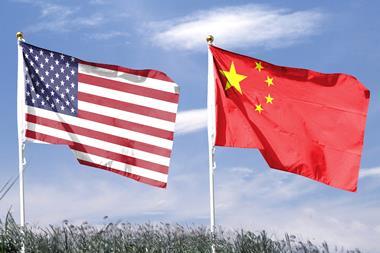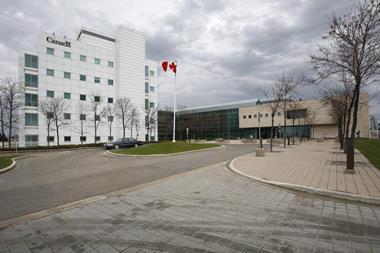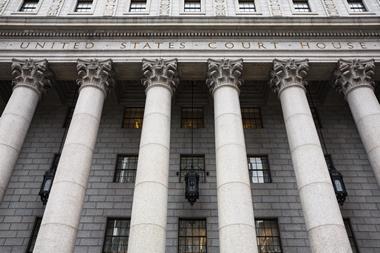The US National Institutes of Health (NIH) has announced that it will implement a policy that requires grant holders to monitor the lab notebooks, raw data and all documentation underpinning research carried out by collaborators based outside the US. The policy is slated to take effect from 1 January, 2024, despite researchers’ concerns that it may represent overreach by the NIH and could significantly disrupt US research collaborations abroad.
The controversial policy was proposed in May, and received extensive feedback during a public consultation in June. Although the NIH acknowledged concerns that had been expressed, it notes that the policy follows recommendations from both the Department of Health and Human Services and the congressional Government Accountability Office for enhanced monitoring and reporting requirements for grantees with foreign subrecipients.
The original draft policy specified that NIH’s international partners must share their data and documentation every six months, but this has now been reduced to once a year in response to feedback from the research community.
The NIH says that the final rules do not represent a new policy, but rather a ‘policy clarification’ that is intended to remind grant recipients that they must comply with longstanding requirements in the agency’s grants policy.
‘Regulations require primary recipients to have effective internal controls in place to ensure that the awards are being carried out in compliance with terms and conditions … and they must monitor the activities of subrecipients as necessary to ensure that the subaward is used for authorised purposes which include the need to review and monitor financial and performance reports,’ the agency notes.
Primary NIH grant recipients act as pass-through entities and ‘must have the right of access to any documents, papers, or other records of the non-federal entity which are pertinent to the federal award,’ the agency adds.
But the American Society for Biochemistry and Molecular Biology, argues that the policy would significantly increase the administrative burden placed on principal investigators and dissuade them from collaborating with foreign entities, noting that PIs already spend, on average, 42% of their time on associated administrative tasks, which represents a significant loss of research time.
Privacy law concerns
The Association of American Universities (AAU) is also worried that the rule could hinder international research collaborations. ‘We are pleased with the clarification NIH has made that research institutions must only provide access to, rather than actual copies of, lab notebooks and data,’ says AAU spokesperson Tobin Smith. ‘Despite this change, we continue to have concerns that the new requirements may come into conflict with confidentiality and privacy laws in Europe and other nations where our universities collaborate on important NIH research.’
Jessica Haberer, who directs research at Massachusetts General Hospital’s Center for Global Health, is concerned that the policy is only directed at foreign institutions. ‘Any sub-award recipient could misuse funds,’ she says. ‘I think NIH policies should be focused on best practices and equitable approaches to accountability when ensuring proper use of federal funds, regardless of geography.’ While Haberer agrees that the NIH’s revised policy is consistent with current annual reporting requirements, she suggests that the framing of the guidance sets a tone that reinforces US primacy in global collaborations.
Temple University physicist Xiaoxing Xi, who was arrested in 2015 and charged with spying but later vindicated when the US government dropped its case against him, is also worried. ‘The US government’s goal of cutting off all science and technology exchanges with China, Russia, Iran, and North Korea has been very clear for quite a while, so the new NIH rule is not a surprise,’ he says. ‘The government has been promoting scientific collaboration with like-minded countries,’ Xi continues. ‘The potential negative impact of the new NIH rule is a good example that such collaboration could very well be affected as well.’
Others like Peter Hotez, dean of Baylor College of Medicine’s National School of Tropical Medicine in Houston, Texas, go further. Writing on X, formerly Twitter, he described the guidance as ‘a showstopper for international research’ and asked who at US universities will be tasked with translating foreign notebooks into English, combing through them and getting sign-off from university officials. ‘I’m hoping this won’t stand and will get dialled down,’ Hotex tells Chemistry World.
But Philip Altbach, distinguished fellow at Boston College’s Center for International Higher Education in Massachusetts, says the NIH regulation is unsurprising given current geopolitical conflicts, concerns over intellectual property theft and cases where links with Chinese entities and funding haven’t been property disclosed by US-based researchers.
‘Anything that makes open science and collaboration more difficult and more fraught is problematic,’ Altbach states. ‘But my only point is: it’s probably inevitable, for understandable reasons.’

















No comments yet